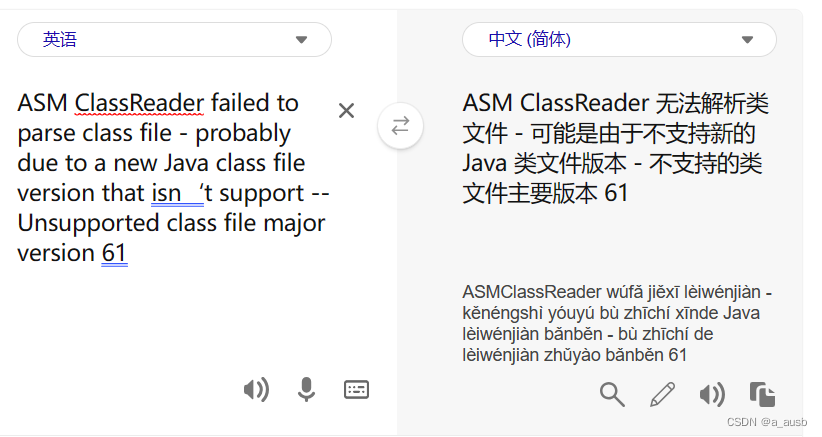Bug
今天导入一个Spring项目,在IDEA中添加完SpringService模块之后,兴冲冲的启动项目,结果报错了,启动失败。
有用的错误信息:
ASM ClassReader failed to parse class file - probably due to a new Java class file version that isn‘t support – Unsupported class file major version 61
解决ing
打开在线翻译,看看这个错误信息什么意思:
ASM ClassReader 无法解析类文件 - 可能是由于不支持新的 Java 类文件版本 - 不支持的类文件主要版本 61

不支持新的版本,版本61???
jdk17的主要版本是61。
我正在用的就是jdk17,我导入的项目用的是jdk8。
打开idea的设置,Java compiler,发现这个项目使用的编译版本是17。

搞定
当前项目不支持jdk17编译,那我换成8不就好了嘛。

点击apply,再点ok,保存。
运行成功!!






















 1966
1966











 被折叠的 条评论
为什么被折叠?
被折叠的 条评论
为什么被折叠?








